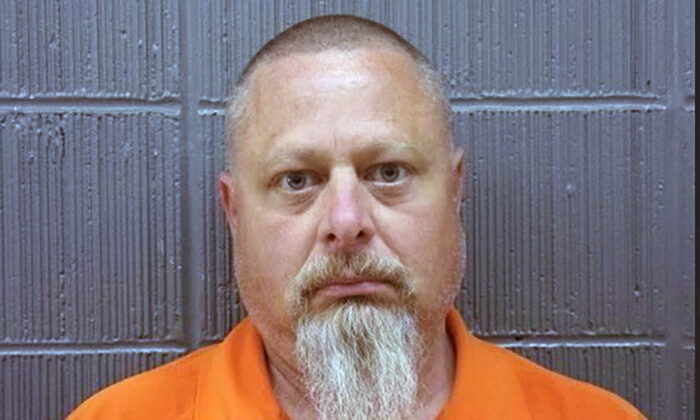INDIANAPOLIS—A man accused in the Indiana murders of two teenage girls during a winter hike in 2017 is set to stand trial in a case that has deeply affected their hometown of Delphi and sparked widespread online speculation.
Richard Allen, 52, faces two counts of murder and two counts of murder while committing or attempting to commit kidnapping in the deaths of 13-year-old Abigail Williams and 14-year-old Liberty German. If found guilty, he could receive a sentence of up to 130 years in prison. Prosecutors are not pursuing the death penalty.
Jury selection will commence in Fort Wayne, Indiana, on Monday. Once the 12 jurors and four alternates are chosen, they will be transported to Delphi, a small town with around 3,000 residents located about 60 miles northwest of Indianapolis. During the trial, they will be sequestered, monitored by bailiffs, and prohibited from using cellphones or watching news broadcasts.
If jury selection concludes by Wednesday, jury instructions and opening statements are expected to take place on Friday morning. The trial is anticipated to last for about a month.
Allen, a pharmacy technician who had previously lived and worked in Delphi, was taken into custody in October 2022, nearly six years after the tragic deaths of Abby and Libby.
The eighth graders were dropped off by a family member at a hiking trail just outside Delphi on Feb. 13, 2017, but failed to return to the agreed pickup location later that day. They were reported missing that evening, and their bodies were discovered the following day in a rugged, wooded area near the trail.
Shortly after, police released images and audio extracted from Libby’s cellphone—two blurry photos and a recording of a man saying “down the hill”—which they believed to be linked to the perpetrator.
However, no arrests were made at that time.
In July 2017, authorities unveiled a sketch of the suspect, followed by another in April 2019. They also shared a brief video capturing the suspect walking on an abandoned railroad bridge known as the Monon High Bridge.
After years of unsuccessful leads, investigators disclosed that they revisited “previous tips.”

Indiana State Police Superintendent Doug Carter announces the arrest of Richard Allen during a news conference in Delphi, Ind., on Oct. 31, 2022. Michael Conroy/AP Photo
Allen had been interviewed in 2017. He informed the officer that he had seen three “females” at another bridge—the Freedom Bridge—while walking on the trail on the day the girls vanished, but he did not engage with them. He mentioned that he was preoccupied with a stock ticker on his phone and did not notice anyone else in the vicinity, as per an arrest affidavit.
On Oct. 13, 2022, police conducted another interview with Allen, during which he reiterated that he had encountered three “juvenile girls” during his walk in 2017. Following this, investigators searched Allen’s residence and confiscated a .40-caliber pistol. Tests revealed that an unspent bullet recovered between the girls’ bodies had been fired from Allen’s gun.
According to the affidavit, Allen claimed he had never been to the location where the bullet was found, did not have any knowledge of the property’s owner, and could not explain why a round discharged from his firearm would be in that area.
Due to evidence leaks, changes in Allen’s legal representation, and subsequent reinstatement by the Indiana Supreme Court, the case has encountered multiple delays. The Delphi murders continue to captivate public attention, with various theories and speculations circulating among true-crime enthusiasts.
Allen County Superior Court Judge Fran Gull, who is presiding over the case, issued a gag order in December 2022 at the request of prosecutors, prohibiting attorneys, law enforcement officials, court personnel, the coroner, and the girls’ relatives from making any statements regarding the case, including on social media.
Judge Gull has banned cameras from the courtroom during Allen’s trial, and reporters are forbidden from bringing electronic devices inside the courthouse.
In August of this year, she ruled that prosecutors could introduce evidence of numerous incriminating statements allegedly made by Allen in conversations with correctional officers, inmates, law enforcement personnel, and family members. This evidence includes a recorded phone call between Allen and his wife, where prosecutors claim he confessed to the murders.
According to Hal Johnston, an adjunct criminal law professor at Indiana University not involved in the case, the judge’s decision was a setback for the defense. He stated, “The incriminating statements will be highly persuasive as that’s what the jury wants to hear. Besides physical evidence, they want to hear the individual admitting to the crime.”
Allen’s defense team had intended to present evidence suggesting that the girls were sacrificed in a ritual by individuals associated with a pagan Norse religion and a white nationalist group known as the Odinists. However, Judge Gull rejected this argument, stating that the defense failed to present admissible evidence linking the killings to such groups.
Furthermore, she prohibited Allen’s attorneys from proposing alternative suspects, including the former owner of the property where the girls’ bodies were found.
Prosecutors have not revealed the specific cause of death for Abby and Libby. Nevertheless, a court filing by Allen’s defense in support of their Odinism theory indicates that the victims’ throats had been slit.
By Rick Callahan
Please rewrite this sentence.
Source link







